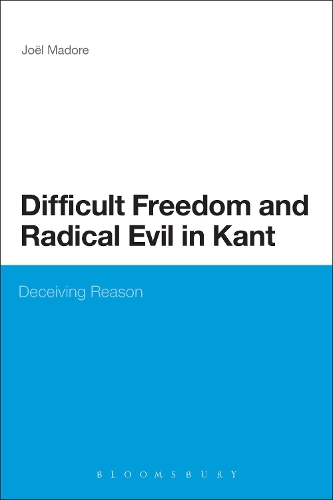
Difficult Freedom and Radical Evil in Kant: Deceiving Reason
(Paperback)
Available Formats
Publishing Details
Difficult Freedom and Radical Evil in Kant: Deceiving Reason
By (Author) Professor Joel Madore
Bloomsbury Publishing PLC
Bloomsbury Academic
25th April 2013
United Kingdom
Classifications
General
Non Fiction
170.92
Physical Properties
Paperback
208
Width 156mm, Height 234mm
286g
Description
To speak of evil is to speak of a gap between what is and what should be. If classical approaches to this problem often relied on a religious or metaphysical framework to structure their response, Kant's answer is typically modern in that it places within the subject the means of its own moral regeneration. And yet from his first essays on ethics to later, more rigorous writings on the issue, Kant also admits an undeniable fallibility and inherent weakness to humanity. This book explores this neglected existential side of Kant's work. It presents radical evil as vacillating between tragic and freedom, at the threshold of humanity. Through it's careful exegesis of the Kantian corpus, in gauging contemporary responses from both philosophical traditions, and by drawing from concrete examples of evil, the book offers a novel and accessible account of what is widely considered to be an intricate yet urgent problem of philosophy.
Reviews
Generally, I greatly enjoyed reading this monograph as it is original, thought-provoking, well-informed, well-structured and creatively written. Joel Madore's account of Kant's tense togetherness of a morality based upon absolute freedom conjoined with a radical notion of evil is refreshing and fascinating. It explores a much neglected 'existentialist' side to Kant, which is nefariously pessimistic in nature. -- Philosophischer Literaturanzeiger, Vol. 64, no. 4
Author Bio
Jol Madore is Professor of Philosophy at Dominican University College, Ottawa, Canada.
